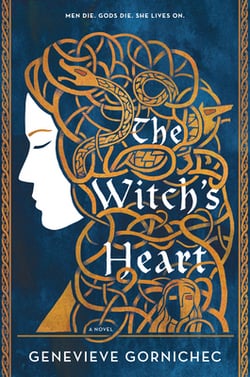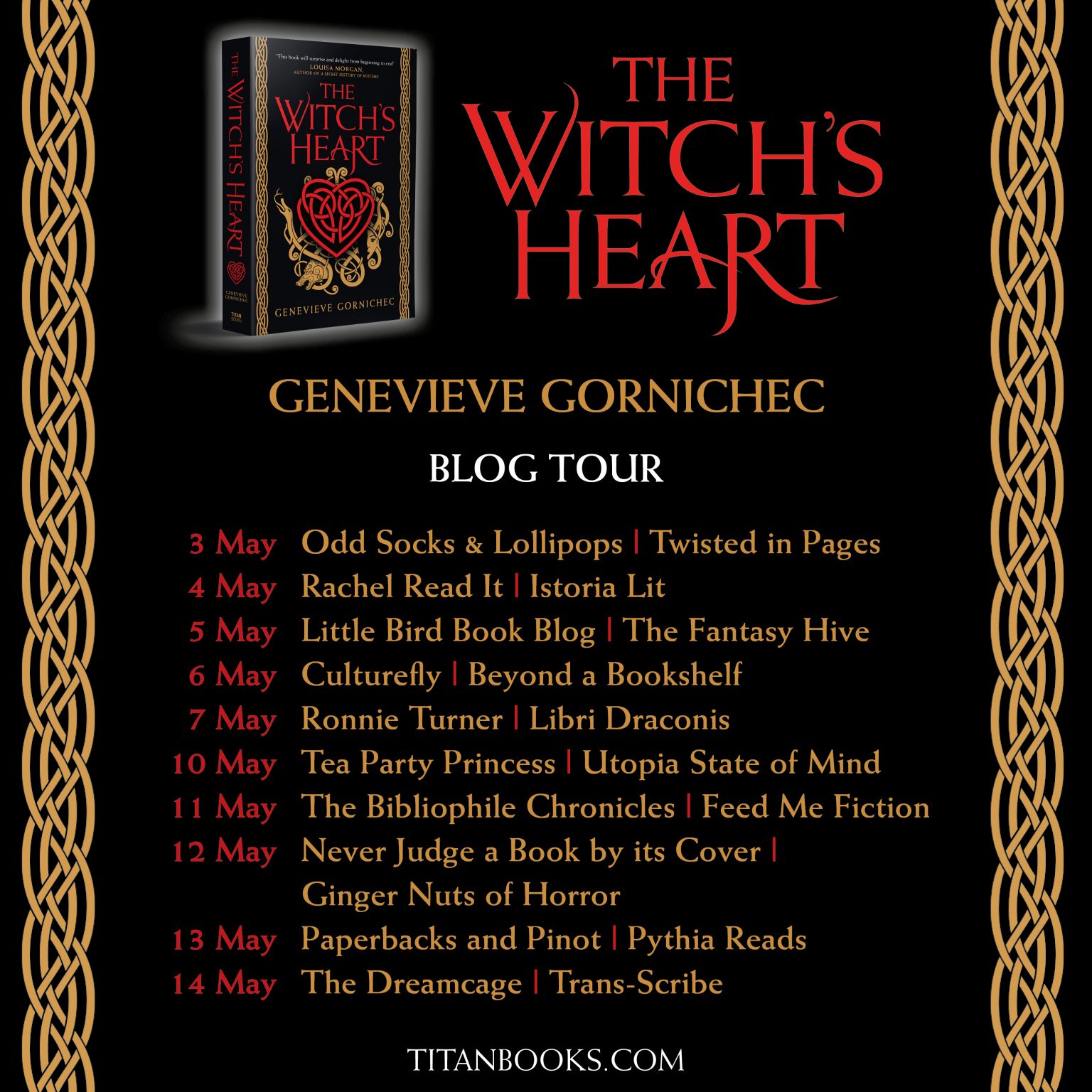
A punishment from Odin for refusing to provide him with knowledge of the future, the fire leaves Angrboda injured and powerless, and she flees to the farthest reaches of a remote forest. If I’d had my way, I would’ve stayed up until the wee hours of the morning, eyes burning, until I’d finished the journey.Īngrboda’s story begins where most witches’ tales end: with a burning. The only reason it took me that long was due to needing sleep and having to work. I started this book on a Tuesday while on my lunch break. I was instantly smitten with the premise, and home it went. Several months back I had money to burn in the form of gift cards, and I saw The Witch’s Heart by Genevieve Gornichec at my local BN. Give me dragons, give me wolf companions, and give me a quest worthy to be remembered. My taste in books and video games followed these trends for the most part as I grew up. I love wolves if you couldn’t already guess.ĭruids, witches, warriors, and forest dwellers. And, as many were depicted with wolves, my love only grew. I loved stories of vikings and the fierce shield maidens.

Of the pantheons, Norse mythology has always been a favorite. I thought the gods were neat characters, and I loved the monsters and beasts that defied logic. ISBN 978-0-85991-513-7.Ever since I was young, I adored mythology. "Eikinskjaldi, Fjalarr, And Eggþér: Notes on Dwarves and Giants in the Völuspá". Norse Mythology: A Guide to Gods, Heroes, Rituals, and Beliefs. ^ "The Witch's Heart by Genevieve Gornichec: 9780593101193 | : Books".

"7th Image on a post by Santa Monica Studio". ^ Santa Monica Studio (10 September 2021).In Völuspá hin skamma (Short Völuspá a poem of Hyndluljóð), Angrboða is mentioned as the mate of Loki and mother of the wolf (Fenrir). The second element "boða" is cognate with the English word bode as in "this does not bode well".Īccording to some scholars, the name Angrboða is probably a late invention dating from no earlier than the 12th century, although the tradition of the three monsters born of Loki and a jötunn may be of greater age. In Norwegian and Danish the word is rendered as "anger" while Icelandic and Faroese has "angur" and Swedish "ånger". The first element is related to the English word "anger", but means "sorrow" or "regret" in Old Norse, the later meaning is retained in Scandinavian languages. The Old Norse name Angrboða has been translated as 'the one who brings grief', 'she-who-offers-sorrow', or 'harm-bidder'.

The Prose Edda ( Gylfaginning) describes her as "a giantess in Jötunheimar" and as the mother of three monsters: the wolf Fenrir, the Midgard serpent Jörmungandr, and the ruler of the dead Hel. She is only mentioned once in the Poetic Edda ( Völuspá hin skamma) as the mother of Fenrir by Loki. She is the mate of Loki and the mother of monsters. For the moon of Saturn, see Angrboda (moon).Īngrboða ( Old Norse: also Angrboda) is a jötunn in Norse mythology.


 0 kommentar(er)
0 kommentar(er)
